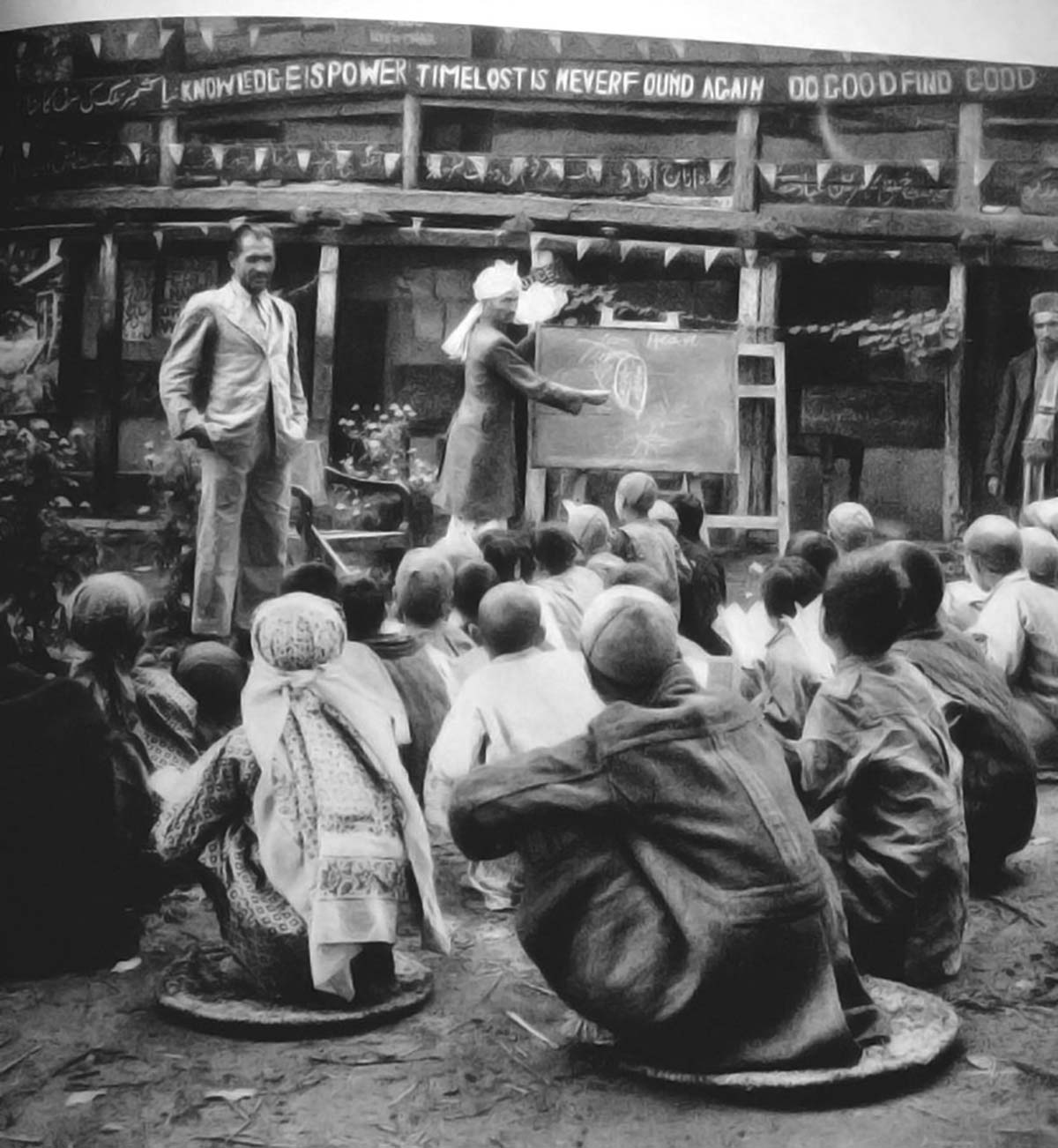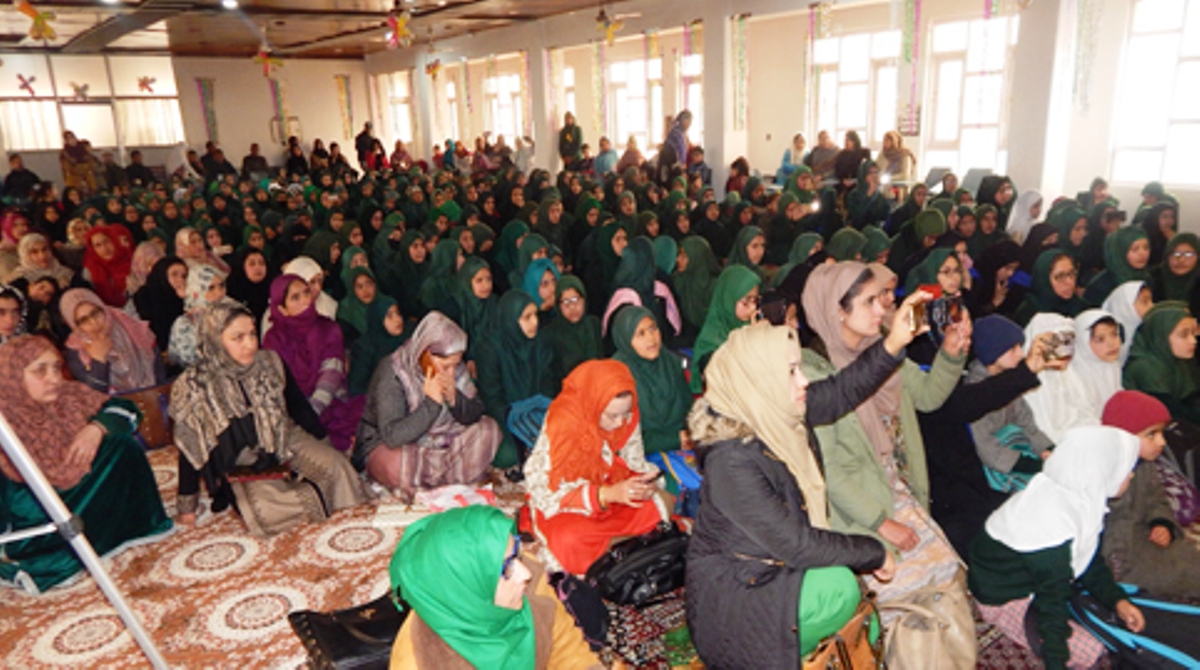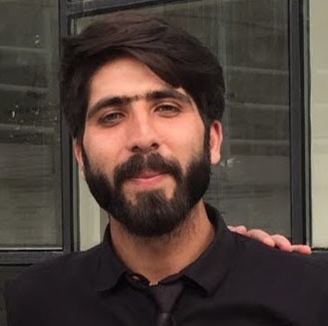by Aabid Mushtaq
The government doesn’t realize its duties and instead becomes the main detriment for learning and development making it difficult for students to access education for regular classrooms and through online portals.
Education is a fundamental human right. It promotes individual freedom and empowerment and yields important development benefits.

However, the impact of conflict on students of all levels is often disgustingly overlooked. Education in such times can be a sustainable tool for achieving the prosperity, harmony and development in the region. Education is a way out to resolve all the problems and means of instilling hope and positivity as well as offering the occasion to the distressed youth who are engulfed in between war and peace.
Jammu and Kashmir told the Supreme Court in recent arguments that the internet is not a fundamental right. The arguments sound ill-conceived as they failed to argue why the internet is not a necessity. Furthermore, the judgment ignores the sufferings’ and loss through which people are going in Kashmir.
Post-August 5, 2019, when Article 370 was abrogated a stringent, callous and an arbitrary way of imposition of lockdown by way of it has triggered the press censorship, communication blockade, internet gag. People’s mobility was almost fettered to their homes, we were cut off from the rest of the world. It seemed it was a stone age that just yet drifted back that too in the 21ist century.
This all began to have its worst impact on different age groups of people in Kashmir; people suffered from it socially, psychologically, emotionally, physically and students in particular, educationally. The education sector is the worst hit during all unrests, which time and again pushed Kashmir’s young generation to more backwardness. The conflict has become an evil which has devastatingly shambled the education edifices. The conflict has triggered numerous social tribulations which have extremely weakened the social fabric. The government restrictions, whether it is internet gag or curfews are against the good governance and basic structures of the Indian constitution.
There is a high academic cost student’s pay due to long periods of closures. Breaks in education faced by the children of Kashmir are volatile and unprecedented, enclosed by fear, trauma which ultimately leads to depression. The government doesn’t realize its duties and instead becomes the main detriment for learning and development making it difficult for students to access education for regular classrooms and through online portals.
As per data compiled by the Jammu and Kashmir police based on the media reports, since 1990 Kashmir has lost significant working days due to conflict. As reported by Indiaspend, 207 working days were lost in 1991, 112 in 2010, 130 is in 2016 (accounting for nearly 60% of total working days). Since August 5, 2019, almost a continuous internet shutdown is in place.
On Jan 12, 2020, the Supreme Court declared that access to the internet is protected under article 19 of the Indian constitution. A three-judge bench of the apex court affirmed that the right to freedom of speech and expression, as guaranteed to all its citizens under the first section of that article, covers the right to go online. The same was declared by the United Nations Human Rights Council that, net access as a fundamental right in 2016 and it reads as ‘Nobody’s voice can be arbitrarily muzzled and so online self-expression can’t be barred”. The importance of the internet in our daily lives is unquestionable. If we talk about the internet need at these going times then we should say that every basic necessity elements of life flow through it. It becomes an existential force to carry out every work from homes across the globe nowadays.

The importance of education and its constitutional stand were derived from the few judicial decisions. The very first case of the Supreme Court in which the right to education was declared a fundamental right was the Mohini Jain versus State of Karnataka (AIR 1992, SC 1858). In this case, the bench deciding on the constitutional practice of charging capitation held that the right to education flows directly from the right to life. The right to life and dignity of an individual can’t be assured unless it is accompanied by the right to education.
It was followed by a five-judge bench In JP Unnikrishnan versus State of Andhra Pradesh (AIR 1993, SC(1) 645) it has been held that …it would be incumbent upon the state to provide facilities and opportunities to the children for educational purposes and to prevent their being deteriorated educationally in any case or situations.
“The Right to education further means that a citizen has a right to call upon the state to provide educational facilities to him. In Maharashtra State Board of Secondary and Higher Education VKS Gandhi (AIR 1991, SC) Right to education at the secondary stage was held to be a fundamental right. The same right has been intercepted in the Indian constitution under article 21-A as a fundamental right to give it a justifiable shape in order to make the state responsible and protector in times of its violation’s for that purpose, an Amendment was done as in the constitution i.e., ( eighty-sixth Amendment) Act, 2002 that inserted Article 21-A in the constitution of India to provide free and compulsory education of all children in the age group of six to fourteen years as a fundamental right in such a manner as a state may, by law, determine.
Apart from these guaranteed rights by the Indian Constitution to its citizens there are few prominent organizations around the world striving for the promotion of Right to Education, such as the United Nations Educational, Scientific and Cultural Organization (UNESCO), United Nation Children’s Fund (UNICEF), World Bank (WB) and International Labour Organization (ILO). The right to education has therefore long been recognized by these international organizations as encompassing not only access to educational provision but also the obligation to eliminate hurdles to make education easily accessible to the children.
There are a large number of human rights problems, which can’t be solved unless the right to education is addressed as the key to unlocking other human rights. The right to education is clearly acknowledged in the United Nations Universal Declaration of Human Rights (UDHR), adopted in 1948, which states that “Everyone has the right to education. Education shall be free, at least in the elementary and fundamental stages… (Article 26) (book of Malcolm Shaw on international and human rights). These diverse domestic, as well as international rights on education, get mischievously unobserved in Kashmir.

From the clampdown on August 5, 2019, to lockdown imposed nationwide in the wake of Coronavirus, every policy and strategy of the administrative bodies in Kashmir are unconstitutional and arbitrary, which lead to the gross root violations of basic human rights of entire people including students in particular. Internet gag in Kashmir at a time when the world has come together to fight the virus stands out as double-edged human tragedy.
Speaking personally, I feel a growing educational gap between me and my friend who is now able to access online study materials and attend departmental Google classes. The future of Kashmir children is in jeopardy, it is a war on prosperity and existence of a state, more simply a war on humanity.
(@AabidRafiqa is a student of law at the School of Law, The University of Kashmir, Srinagar. The opinions expressed in this article are those of the author’s and do not purport to reflect the opinions or views of Kashmir Life.)















